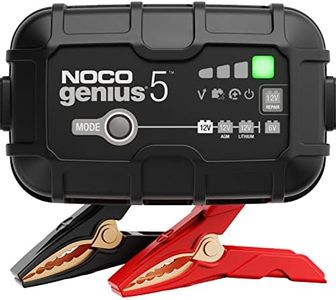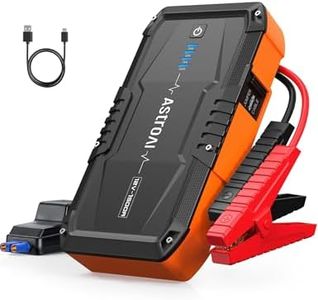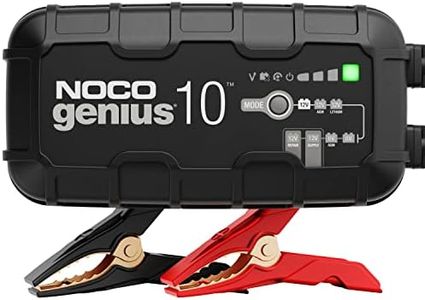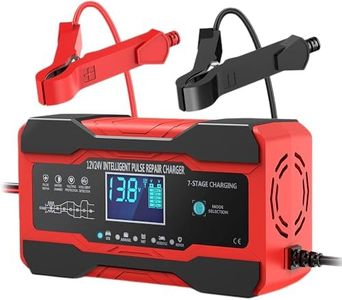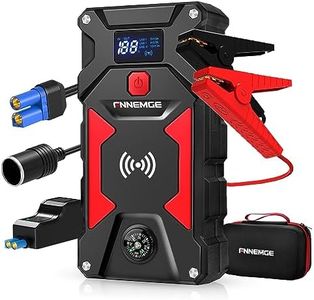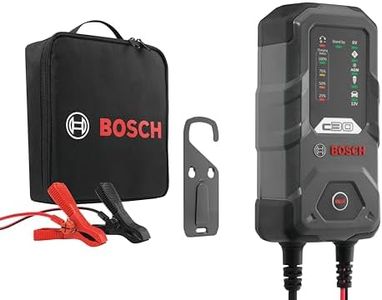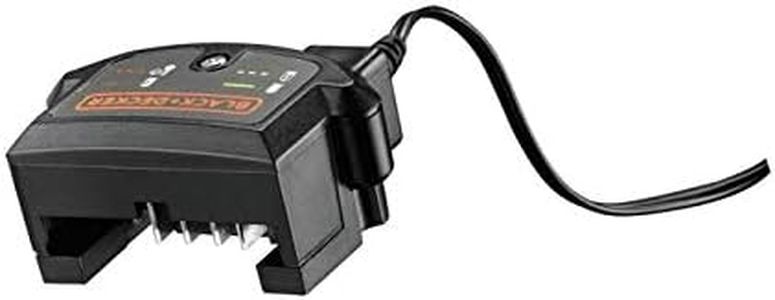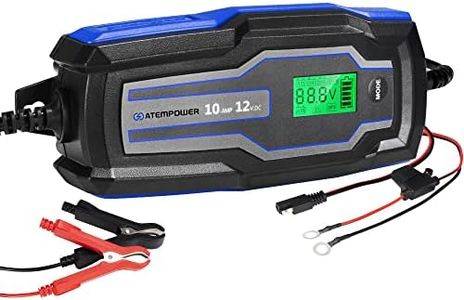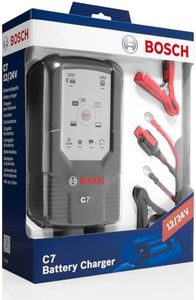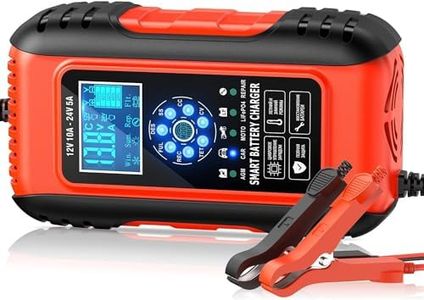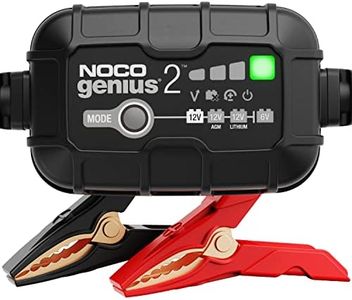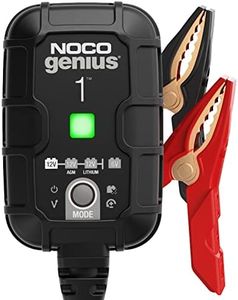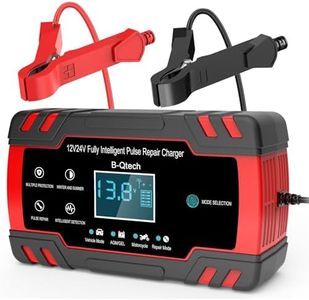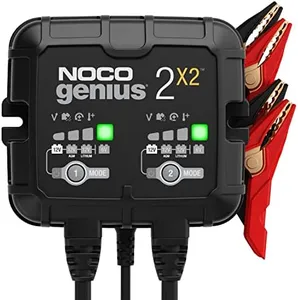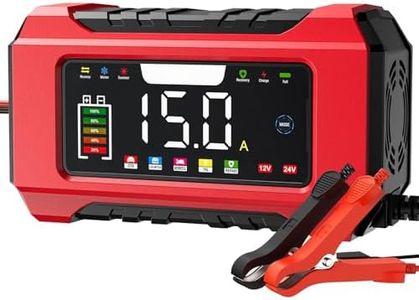We Use CookiesWe use cookies to enhance the security, performance,
functionality and for analytical and promotional activities. By continuing to browse this site you
are agreeing to our privacy policy
10 Best Car Battery Chargers
From leading brands and best sellers available on the web.By clicking on a link to a third party's website, log data is shared with that third party.
Buying Guide for the Best Car Battery Chargers
When it comes to buying a car battery charger, the goal is to find a device that can safely and efficiently bring your car's battery back to life whenever it's low or dead. Before choosing, think about what kind of vehicles you have, how often you expect to use the charger, and the kind of battery maintenance you want to perform. A good charger not only helps start your car in emergencies but can also prolong your battery's lifespan if you use it for regular maintenance.Charging Amperage (Amp Output)Charging amperage refers to how quickly a charger can deliver electrical current to your battery. High amp chargers (10 amps or more) refill the battery much faster, while low amp chargers (1-5 amps) charge slowly but gently, which is better for battery health if you have time. If you need to quickly get your car started, a higher amperage charger is beneficial. On the other hand, for maintenance or charging classic/seasonal vehicles during storage, a lower amperage is safer and more suitable.
Battery Compatibility (Type and Voltage)This spec tells you which types of batteries and voltages the charger supports, such as 12V standard lead-acid, AGM, gel, or even 6V for some motorcycles and classic cars. Most modern cars use 12V batteries, but always check your vehicle’s requirements. If you own multiple types of vehicles (like motorcycles, boats, or RVs), consider a charger that supports multiple voltages and types so you can use it for all your batteries.
Automatic vs. Manual OperationAutomatic chargers have sensors and built-in smart technologies that stop charging when the battery is full, preventing overcharging and damage. Manual chargers need you to monitor and stop charging yourself. For most people, automatic chargers are safer and easier, especially if you’re not experienced or might forget to stop the charger. Manual ones might suit enthusiasts who want more control.
Safety FeaturesCommon safety features include protections against short-circuits, reverse polarity (connecting the clamps incorrectly), overcharging, and sparks. These features protect both you and your battery. If you are new to using battery chargers or want peace of mind, prioritize a charger with solid safety features, making the process much less risky.
Portability and SizeSome chargers are compact and lightweight, intended for easy storage in your vehicle for emergencies, while others are larger and suited for home garages with more charging power and extra features. If you want a charger to keep in your car or carry around, look for a small, lightweight one. For home use, a larger, more versatile charger may be acceptable.
Additional Functions (Maintenance/Trickle Charging, Jump Start, Desulfation)Modern chargers sometimes come with extra features like trickle charging (keeping a battery full without overcharging), jump start capability (helping you start the car immediately), or desulfation (special pulses to revive old batteries). Think about what you’ll use the charger for: if you want to keep a parked or rarely-used vehicle ready, maintenance mode and trickle charging are great; if you want help in emergencies, look for jump start features.
